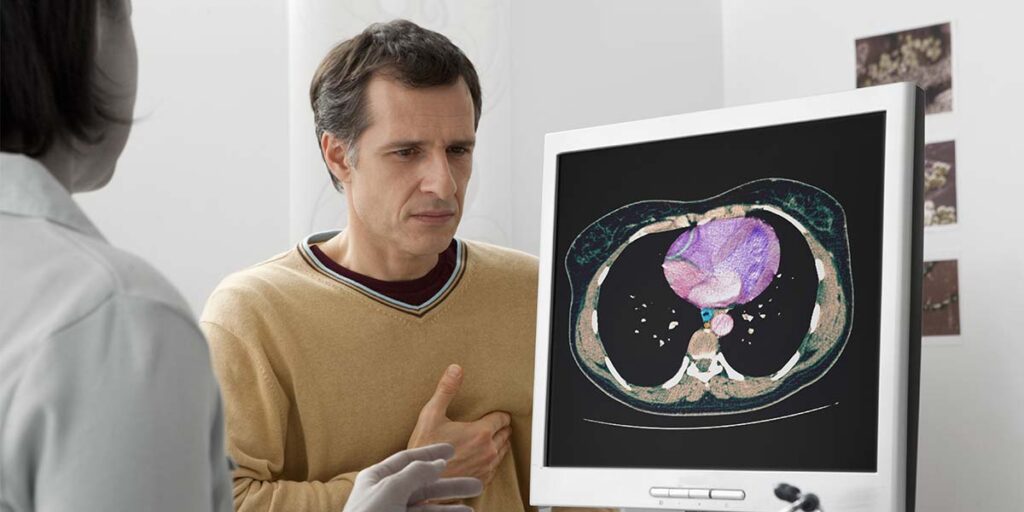Chest CT Scan for Your Heart: Who Benefits the Most?
A CT scan uses X-rays to take multiple cross-sectional images of the body. A computer then combines those images to create a clear, 3D view of the internal organs. CT scans can help providers diagnose a variety of conditions, ranging from Alzheimer’s disease to cancer to spinal cord injuries.
A chest CT scan captures images of the chest and upper abdomen to help diagnose a range of lung and heart diseases and conditions. For heart patients, doctors may order a CT scan to look for any artery blockages or calcium buildup in the heart.
Doctors use two types of CT scans to help them diagnose cardiac conditions: coronary CT angiography and coronary artery calcium scan.
Coronary CT angiography
A coronary CT angiography is a CT scan of the heart with contrast dye. This scan allows providers to view the blood vessels in and around your heart, which can help show any artery blockage. Allergic reactions to contrast dye are not common, but they do occur. Be sure to alert your provider to any abnormal symptoms.
Your CT scan will be complete in minutes. You will be asked to hold your breath for small periods of time to obtain clear images. To prepare for a chest CT scan with contrast dye, don’t eat within three hours of your test.
Cardiac calcium scoring
Routine heart scans, also known as coronary artery calcium scoring, help track changes to your health, specifically related to the heart.
Coronary calcium scoring measures the amount of calcium buildup in the arteries to determine a calcium score. This score, also known as an Agatston score, indicates a normal calcium score is zero, and the higher the calcium score, the higher the chance for heart disease. Any score over 300 is considered to be very high risk. This test does not require contrast dye.
To prepare for a coronary artery calcium scan, don’t smoke or consume caffeine for at least four hours before your test.
The cost of a chest CT scan varies based on the provider and your insurance. To obtain the most accurate estimate, contact your insurance provider.
Schedule your chest CT scan at one of our AHI locations.
